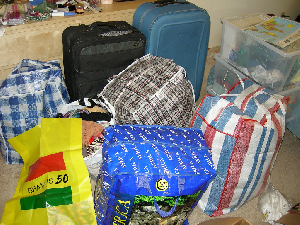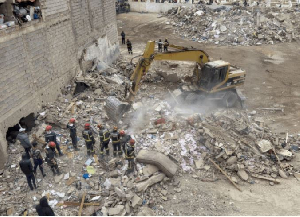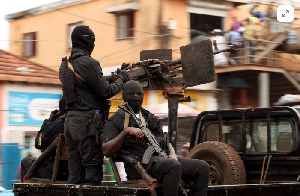Key state agencies operating at Ghana’s entry points have tested their state of readiness in terms of capacity and level of coordination in a simulation exercise at the Port of Tema.
The simulation exercise was fashioned to test the draft contingency plan of the Ghana Immigration Service and its technical partners, the Integrated Centre for Migration Policy Development (ICMPD) which forms part of the Strengthening Border Security (SBS) in Ghana project.
Among the participating state agencies were the Ghana Immigration Service, the Ghana Ports and Harbours Authority, the Customs Division of GRA, Port Health, Marine Police, National Disaster Management Organization, the National Ambulance Service, Ghana National Fire and Rescue Service, and the National Intelligence Bureau, who all replicated their complementary roles stipulated within the draft contingency plan.
The exercise depicted the response actions of these agencies during the inadvertent scenario of an influx of refugees received at the sea port following political upheaval in a neighbouring country in a pandemic era.
The various agencies had to take into cognisance the health protocols while exercising high alertness on security threats so as not to catalyse criminal activity as well as prevent the importation and spread of disease into Ghana.
An Assistant Commissioner in Charge of the Policy Planning, Monitoring and Evaluation Department of the Ghana Immigration Service, Thomas Ewuntomah said the COVID-19 pandemic gave impetus for such projects to be deployed.
“We as a service thought that once we are deeply involved in some activities related to COVID by way of contact tracing among others, it was a wakeup call for us to have some kind of plan in place to be able to manage such emergencies,” Mr. Ewuntomah expressed.
He explained that the gaps identified within the exercise would be improved upon in the contingency plan during further simulation exercises.
The Harbour Master at the Port of Tema and Chairman of the Port Facility Security Coordinating Committee, Capt. Francis Kwesi Micah said the exercise is vital to improve Ghana’s preparedness level in the event of similar occurrences.
“We could have an influx at any time because we are hearing of election disputes in West African countries bordering us, we are hearing of terrorism at sea, and poverty due to social standards of adjustments all over. Therefore, if the country does not get itself prepared, more importantly, the port, then we would be taken by surprise.”
Capt. Micah who also acted as the on-scene commander for the exercise outlined various positive takeaways from the exercise including the fact that the plan made room for business continuity at the port during such emergencies.
Business News of Wednesday, 24 March 2021
Source: Eye on Port













